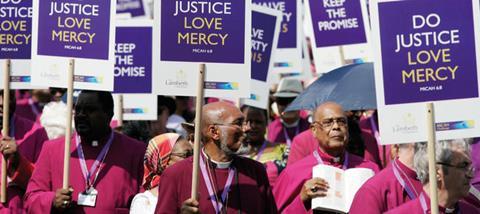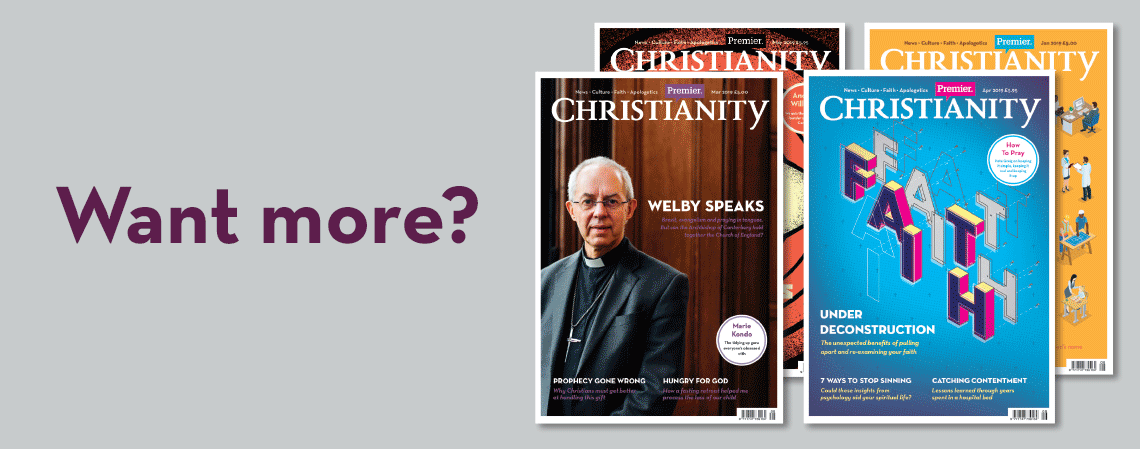
Elections can be divisive arenas. Politicians become caricatured wrestlers and media commentators hype the antagonism. The thud of a combatant hitting the canvas is what we often crave as spectators.
Into this gladiatorial context, Christians from various political parties have come together to counter-culturally support one another and say that ‘kingdom comes before tribe’. A band of more than 30 Christian organisations and church networks from across the theological spectrum have joined with them to say that spectating is simply not enough.
The product of this is the Show Up campaign; the quirky, provocative video for which you may have already seen (see the link at the end of this article). The positive response to the video’s challenge about where the Church is investing most of its energy has been overwhelming.
The campaign is based on a ‘kingdom first’ agenda, and a set of carefully nurtured relationships, which mirrors what is happening on the ground in the UK. People are finding unity in a shared mission. Those who are running food banks, debt centres and all manner of creative projects are beginning to realise that they can work more effectively when they collaborate with other churches.
GOING BACK TO THE JERICHO ROAD
This work is crucial, but there is a strategic temptation. Civil rights leader Martin Luther King once explained that, as the Church, we enjoy playing the Good Samaritan on life’s roadside. But he went on to warn that we rarely take the time to do the sometimes harder work of going back to the Jericho Road.
Who is working out how to stop more people getting mugged? Could we improve the lighting or increase the policing? Perhaps more CCTV cameras are needed? These are political decisions, often made around dull committee room tables while poring over statistics and reports. It’s not as exciting as helping someone up close.
Through these grassroots projects, people are exposed to some of the huge needs in their neighbourhoods. They see the challenges for those on limited or no incomes and the difficulties of those whose family backgrounds work against self-belief or learning. These interactions leave people asking: Why is thce playing field so skewed? What can we do so that we don’t have to come back here every year to do the gardening, bring food or restore the playground?
POLITICS IS IN NEED OF INCARNATION, NOT JUST DEMONSTRATION
Once you start asking these questions, you begin to form political answers. But while one Christian will feel inspired to campaign for a living wage to be paid, another may see the same situation and campaign for measures to strengthen family life, or to free up entrepreneurs to start small businesses.
GET INVOLVED
Another reason we sometimes shy away from politics is that we want to avoid conflict with one another. But we have been playing it safe, shouting from the sidelines for too long. We need to get on the pitch. We have sent the postcards and the mass emails, but now we need to be sent in person. Politics is in need of incarnation, not just demonstration.
That is why we have created the Show Up campaign. In the run-up to a general election, it is all too easy to spend our time discussing who to vote for, allowing the Church to again retreat into the role of commentators and critics rather than participants. Could 2015 be a springboard so that, in 2020, we are answering the questions at hustings rather than asking them?
Visit christiansinpolitics.org.uk/showup for the video, more information and a suite of resources. Follow on Twitter using #showup. Andy Flannagan’s Those Who Show Up (Muddy Pearl) gives a more detailed overview.
Bishops offer voting guidance
The Church of England has published a 50-page document giving Christians advice on how to vote ahead of the general election. It outlines a number of areas for Christians to consider and advises people to vote for a party that is interested in ‘reversing the accumulation of power and wealth in fewer and fewer hands, whether those of the state, corporations or individuals’.
The ‘Who is my neighbour?’ document covers political culture, parties and democracy; the role of the state; society; economy; poverty and inequality; welfare; health; immigration; education; environment; and defence. It also outlines the benefits of belonging to the European Union.
The Bishop of Buckingham, Dr Alan Wilson, who helped write the letter, told BBC4’s Today programme: “We’re not telling people how to vote, but why to vote.”
Read the full document at churchofengland.org
Click here to receive your free copy of Premier Christianity magazine.




























